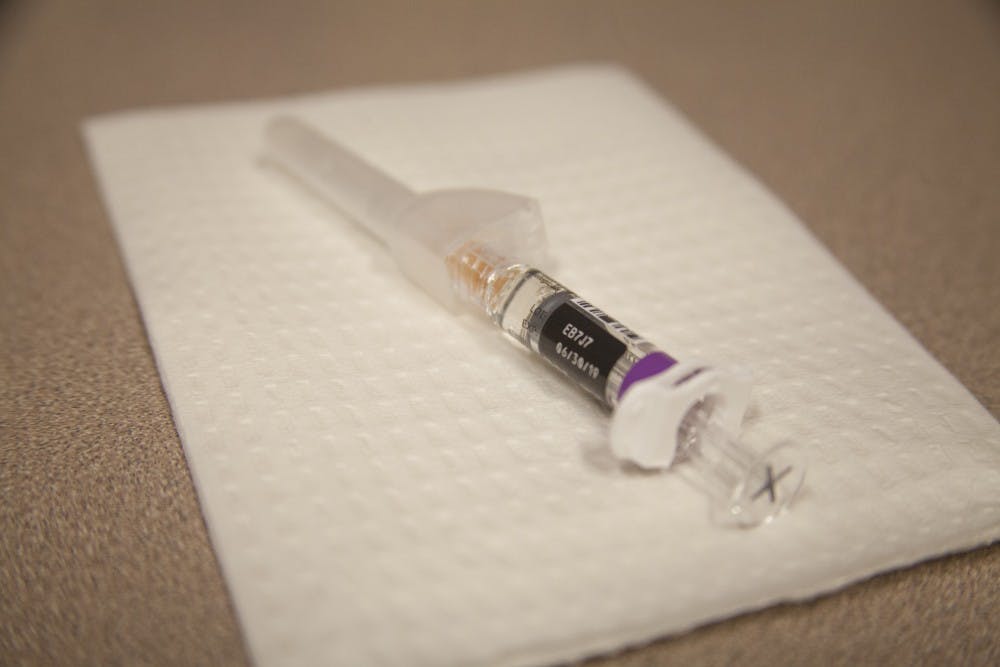Once again, media outlets and public health officials are asking us, “Have you gotten your flu shot?” And once again, many people are going to ignore the question entirely, especially college students.
According to the National Foundation for Infectious Diseases, between 8 and 39 percent of students on college campuses get vaccinated, appallingly short of the 70 percent target rate. This low number is even more concerning given that last year an estimated 80,000 people died across the United States from a particularly severe H3N2 strain of the flu. The main reasons so few college students get their flu shots are misconceptions and fear.
One of these misconceptions is that the vaccine doesn’t work. Here’s the truth: It does.
The CDC stated that over the 2016-2017 year, “flu vaccination prevented an estimated 5.3 million influenza illnesses, 2.6 million influenza-associated medical visits and 85,000 influenza-associated hospitalizations.” The vaccine significantly reduces death related to influenza among children and reduces the severity of the illness among those who were vaccinated but still got the flu.
Of course, it’s reasonable to ask: if you get vaccinated, why is it that you can sometimes still get the flu?
You would think the vaccine wasn’t doing its job. But let’s remember how vaccines work. Vaccines are simply a weakened form of three or four of the most common influenza strains of the season. They cannot cause the flu. The viruses are effectively dead and are there so that your body can create the proper antibodies that will defend you from the real thing. A very small percentage of people might get a fever after a shot, but this is only a temporary reaction and not the actual flu.
If you really do get influenza even though you’ve been vaccinated, there are a couple possibilities for why that is.
One is that you caught a virus before your immune system was able to build up a resistance to it.
Sometimes, if you get your shot late in the game, a flu virus might enter your body during the two-week period you need to build up resistance. In that case, you will still get sick. For this reason, it is important to get your flu shot as early as you can so that you leave enough time for your body to prepare. The CDC recommends shooting for the end of October, although even by January or later it is not too late.
Another reason you might still get the flu is that the virus has significantly changed since the creation of the vaccine.
The viruses’ genetics change from one year to the next, and so every year, new vaccines need to be made to account for those changes. The three or four particular viruses that the vaccine will protect against are chosen by experts months in advance of each flu season. However, sometimes, the viruses change so much in a single season that they are too different from what was in the vaccine, and your body no longer has the right antibodies to stop them.
While vaccines do not guarantee a flu-free winter, they still reduce your chances of catching the virus by 40 to 60 percent.
If you do still get the flu, you won’t become as sick as if you hadn’t gotten your shot. The CDC notes, for example, that “among adults hospitalized with flu, vaccinated patients were 59 percent less likely to be admitted to the ICU (Intensive Care Unit) than those who had not been vaccinated.”
While vaccines have their flaws, they are still our most effective weapon against influenza. Even if you’ve never received one, and you’ve never gotten sick from the flu, you are still vulnerable. Even unvaccinated children, with their young and robust immune systems, have died from influenza and its complications — last year, that number was at 180.
It is therefore important to get your shot so that you won’t become a spreader of the virus. An article from NPR even calls flu shots your “civic duty.”
Fortunately, IU’s Health Center provides flu shots with no appointment necessary. If you’re passing by, see if you can stop in really quickly and get your shot soon. Do not put yourself and the rest of your community at risk by refusing to get vaccinated.




